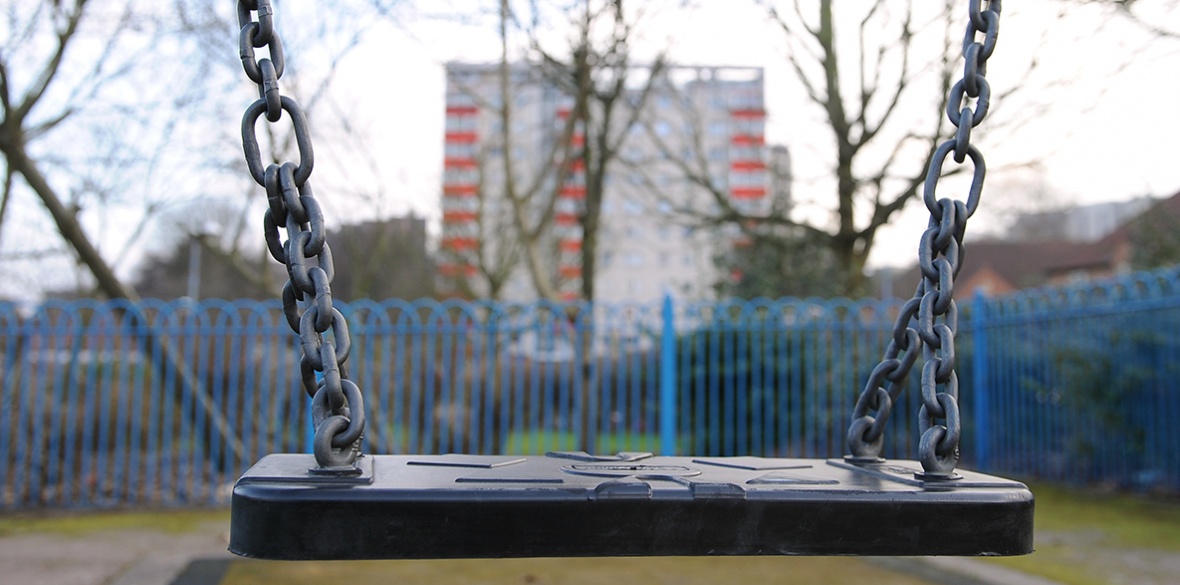This is the last article you can read this month
You can read more article this month
You can read more articles this month
Sorry your limit is up for this month
Reset on:
Please help support the Morning Star by subscribing here
THE pandemic has revealed just how little the Tories care about children who are being sacrificed on the altar of free market, libertarian ideology.
Loosening restrictions to contain the virus spread will put hundreds of thousands of unvaccinated children under 18 years of age at risk of developing long Covid, serious chronic illness or exposure to new variants.
The data has already established that poor, minority ethnic communities are hardest hit by the pandemic and more clinically vulnerable.
Poor housing conditions mean that virus spread is more likely, and workers on poverty wages cannot afford to isolate away from workplaces where social distancing is impossible.
The Tories privatising solutions for children have proved disastrous. Recently, children held in a condemned privately run secure training centre for vulnerable offenders were moved into unsuitable alternative custody.
About 30 children previously held at the notorious Rainsbrook secure training centre were moved following repeated calls for urgent action over problems at the unit.
Children were being locked up during the coronavirus pandemic for more than 23 hours a day at the site.
But now half the children have been moved to youth offender institutions where staffing levels are lower and violence is rife.
In June the education recovery commissioner for England, Sir Kevan Collins, resigned in a row over the lack of credible Covid catch-up funding.
He only took on the role as catch-up tsar in February to develop a long-term plan to help pupils make up for lost learning during the pandemic.
He stepped down less than four months later, saying the government’s funding for the plan falls far short of what is needed.
Head teachers labelled the £1.4 billion cash — which is about 50p per week for every schoolchild — over three years as a damp squib.
The Education Policy Institute had calculated that a catch-up funding recovery would need £13.5bn and Sir Kevan had put forward plans costing £15bn.
The National Education Union says: “Covid-19 has exposed brutal poverty and inequality in the UK and the harm this does to children and young people.
“Too many suffer from food insecurity, poor housing, tech poverty, stigmatisation and social exclusion, which combine to create a toxic combination of anxiety about the present, a lack of belief in the future and increasing rates of mental ill-health for children and young people.”
New regulations have allowed companies such as G4S, Serco and Virgin Care to legally bid for work within children’s social services once they create a not-for-profit subsidiary company.
The original private-sector company would be able to charge the subsidiary for costs, therefore garnering profit from children’s services.
This forces local councils to go with cheaper alternatives, such as external bidding companies.
Private-sector companies are then able to use their not-for-profit subsidiaries to place children in care if that was beneficial to them financially, rather than what was best for the child’s development.
For example, private equity firms own two of the three largest foster placement providers and 65 per cent of residential homes for children are now run by the private sector (only 11 per cent are run by charities).
Children in care are more likely to suffer from mental health problems.
Mental health problems affect three times as many children in social class V (manual and unskilled) compared with those in social class I (professional), according to the recent authoritative Social Trends findings.
A recent report on social inequalities from the Office for National Statistics revealed that one in 10 children in the UK suffers from a poverty-related mental health problem.
A recent study just published by the Centre for Mental Health also found that children from the poorest 20 per cent of households are four times as likely to have serious mental health difficulties by the age of 11 as those from the wealthiest 20 per cent.
Children and young people with a learning disability, who are statistically more likely to be in poorer families, are three times more likely than average to have a mental health problem.
And children from African-Caribbean communities in the UK have parents with higher rates of post-traumatic stress disorder, suicide risk and are more likely than average to be diagnosed with schizophrenia.
Every government over the past 25 years has promised to either reduce or eradicate child poverty.
They have all failed. Unless the root causes of children’s increasing mental health problems are addressed, the current system is set to fail another generation of some of the most vulnerable children in Britain.
They will become the adults of the future with mental health problems, at risk of potentially ending up in the prison system, homeless, with relationship breakdowns, addicted to drugs and alcohol and ending their own lives. It does not have to be this way.
Steven Walker is author of Children Forsaken — Child Abuse from Ancient to Modern Times. (Critical Publishing, 2021).










